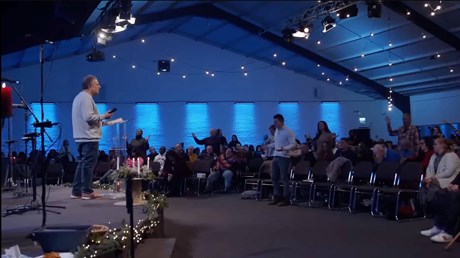Did a popular youth leader’s “vulnerability and self-deprecation” avert skepticism and accountability?

The last Soul Survivor festival, led by popular British evangelist Mike Pilavachi, marked the end of an era.
What began as a gathering of around 2,000 young people at a campsite in southwest England had grown into a movement of tens of thousands, with 32,500 people—mostly teens—attending the final event in 2019.
Pilavachi was the founder and figurehead of Soul Survivor and the driving force behind a movement that had embraced charismatic gifts and inspired a generation of young Brits to pursue Christianity in an age when the country’s churches struggled to retain teenage worshippers.
Before this year, the first line in a recent statement from the youth ministry charity Youthscape would have read as a tribute to his legacy: “Mike Pilavachi’s influence is such that a significant proportion of Christians in the UK and beyond will feel some connection to the ministry of Soul Survivor.”
Instead, it was a warning. As the Church of England conducts a safeguarding investigation into allegations against Pilavachi, Youthscape issued a 2,600-word guide to help leaders respond.
“This news is likely to be disorientating,” the charity wrote. “It could be causing us to question memories or experiences of the festivals we hold dear. We might feel disappointed, angry, or betrayed hearing that someone we trust is under investigation in this way.”
Pilavachi’s case comes as the church faces growing scrutiny over its safeguarding policies and response to abuse, with a string of leaders facing accusations spanning decades.
The claims against Pilavachi first became public in May, when British media publishedaccounts from men who said Pilavachi massaged, straddled, and wrestled with them ...
from Christianity Today Magazine
Umn ministry


.gif)

.gif)
.gif)
